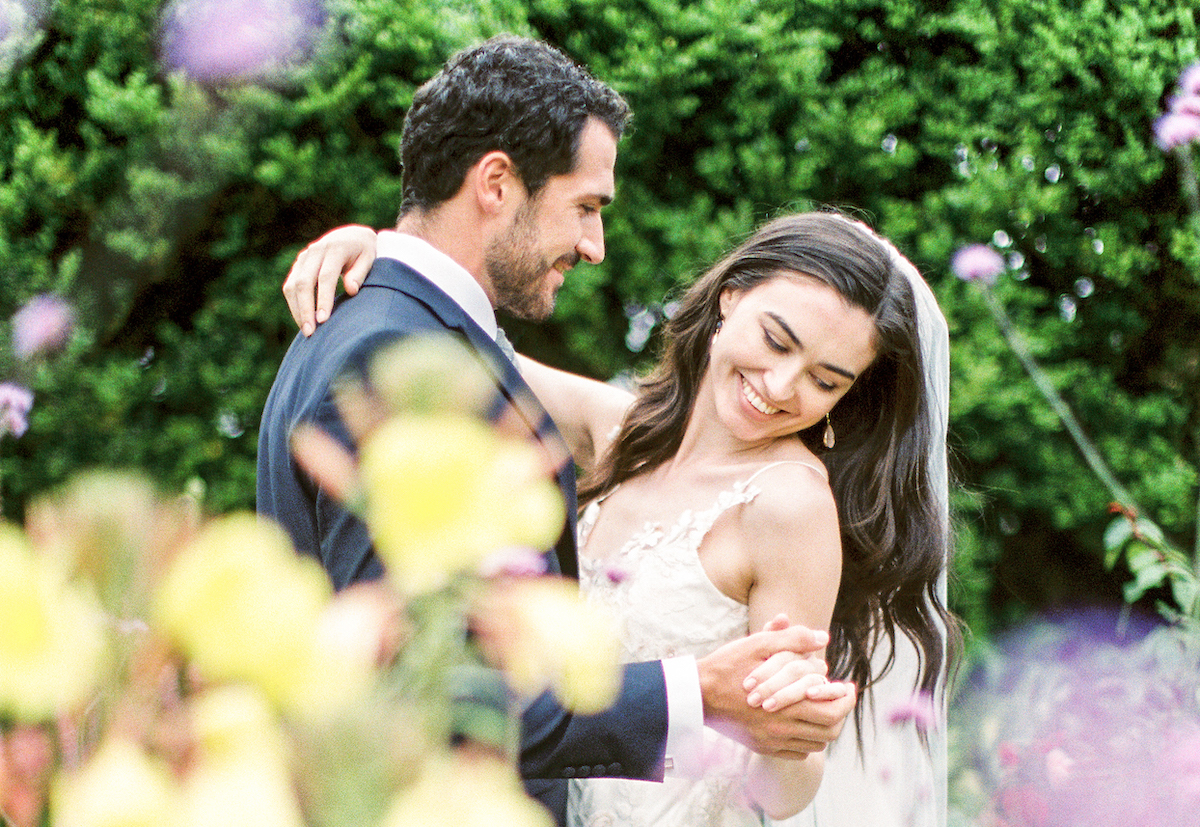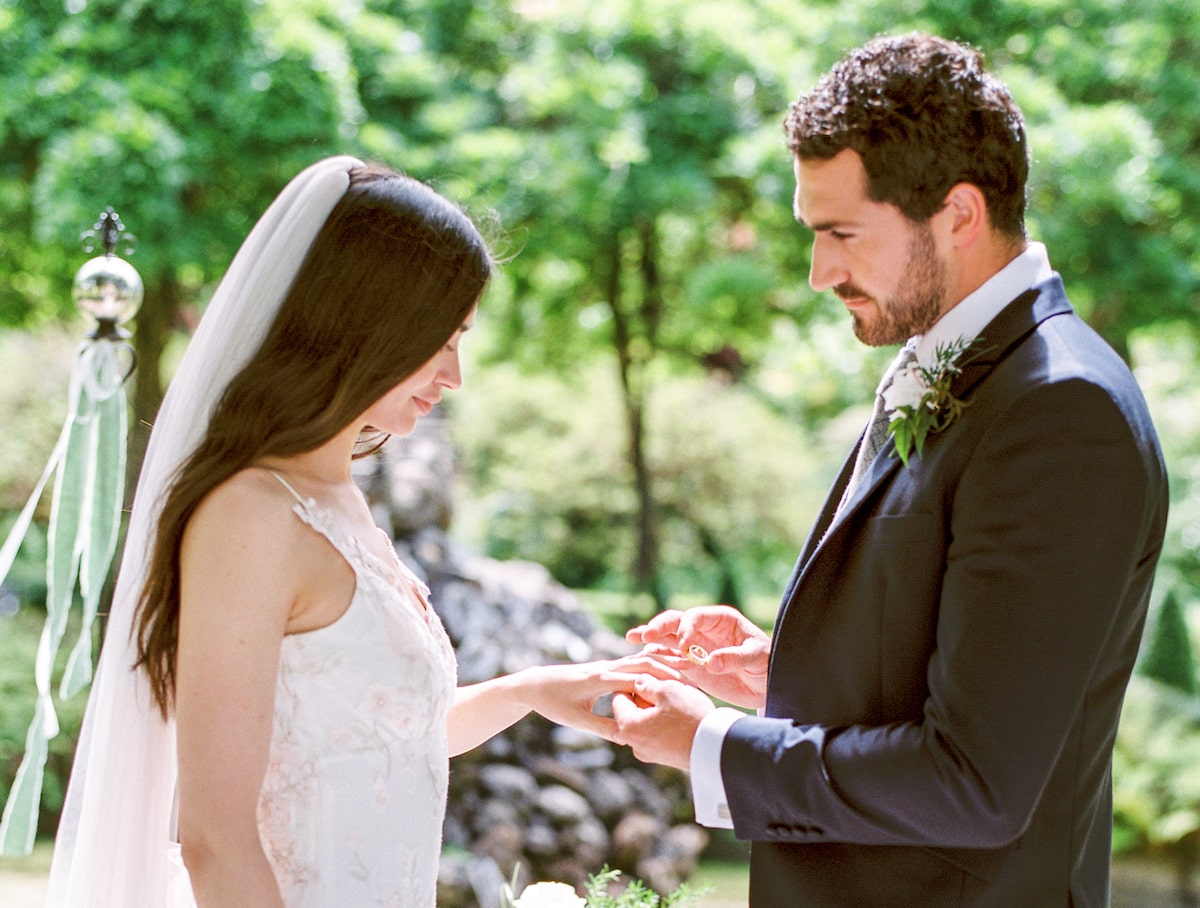Can you plan a wedding in six months? Absolutely! Whatever your reasons for getting married sooner, a wedding planned on an abbreviated timeline can be just as amazing as one that takes the traditional year to eighteen months. I’ve seen my fair share of short engagements in my years as an Irish wedding planner, and all it requires to pull it off are organisation, decisiveness, and a bit of flexibility. But where do you start? And how can you avoid the pitfalls? Read on for my top tips on how to plan a wedding in six months – or even less!
First things first. There’s no time to waste! But before you do anything else, it’s important to nail down your budget. This will help you make all the other decisions quickly. It’s also a good idea to create a list of priorities between the two of you. That way, even if you have to compromise on some of the smaller details, you’ll have the big things lined up.
Check venue availability before you choose your date. Many wedding venues in Ireland book up a year or more in advance. However, you can still find a great venue at shorter notice. You may need to be flexible about the day or time or ask about any cancellations. Another idea is to look at non-traditional spaces, especially if you’re planning a smaller wedding. Once you find a great venue with an available date, book it!
Line up the rest of your vendors asap. It isn’t just venues that get booked up well in advance. As soon as you have a date locked in, get in touch with photographers, florists, videographers, and entertainment. You probably won’t always secure your first-choice vendors, but always ask for their recommendations if they’re not available. You may find an emerging talent.
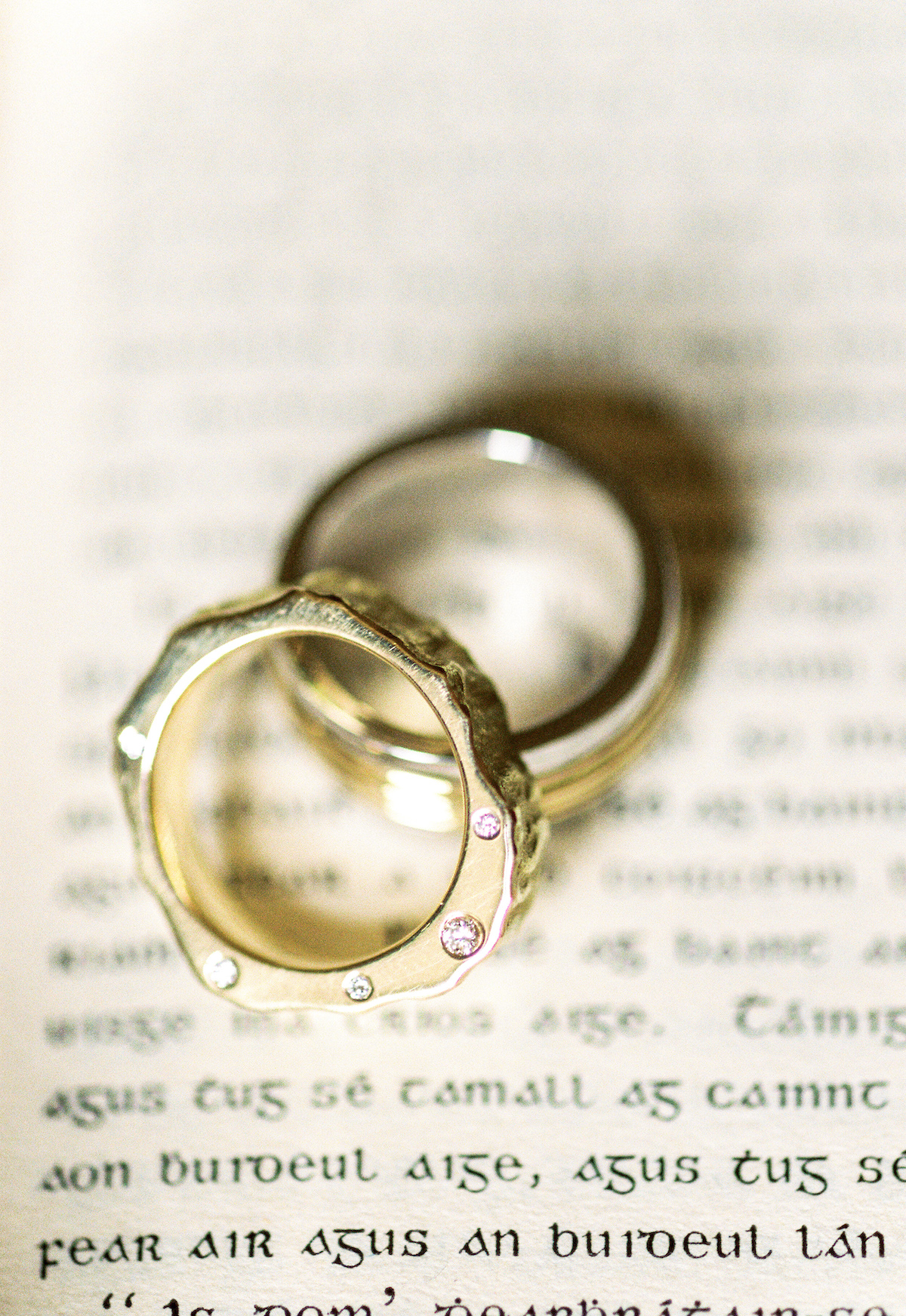
Take care of the legalities. One mistake couples who plan a wedding in six months or less often make is to leave the paperwork later than they should. This is especially true for a destination wedding in Ireland. Your marriage licence application must be lodged at least three months before the wedding date and there is quite a bit of documentation to gather first. The earlier you start, the better.
Be decisive. With a shorter timeline, it’s essential that you’re prepared to make decisions quickly. Work out your wedding vision and stick with it. Limit your options where possible and don’t change direction once you’ve made a decision. While it can feel scary, you’ll actually be surprised by how much easier the process is when you don’t second-guess yourself.
Get organised. It’s important that you stay on top of everything, especially your emails. Vendors who are working with a short turnaround time will need a prompt response to their questions. Make sure you have comprehensive to do lists and that you keep all your ‘wedmin’ documentation in one place.
Get some help. All this decision-making and email-answering can make it feel like planning your wedding is a full-time job. But you don’t have to do it alone! Hiring a wedding planner in Ireland is always a good idea but even more so when you’re working with a shorter timeline. Your planner will help you manage all the logistics, keep track of moving parts, and apply their expertise and experience to ensure it’s all smooth sailing.
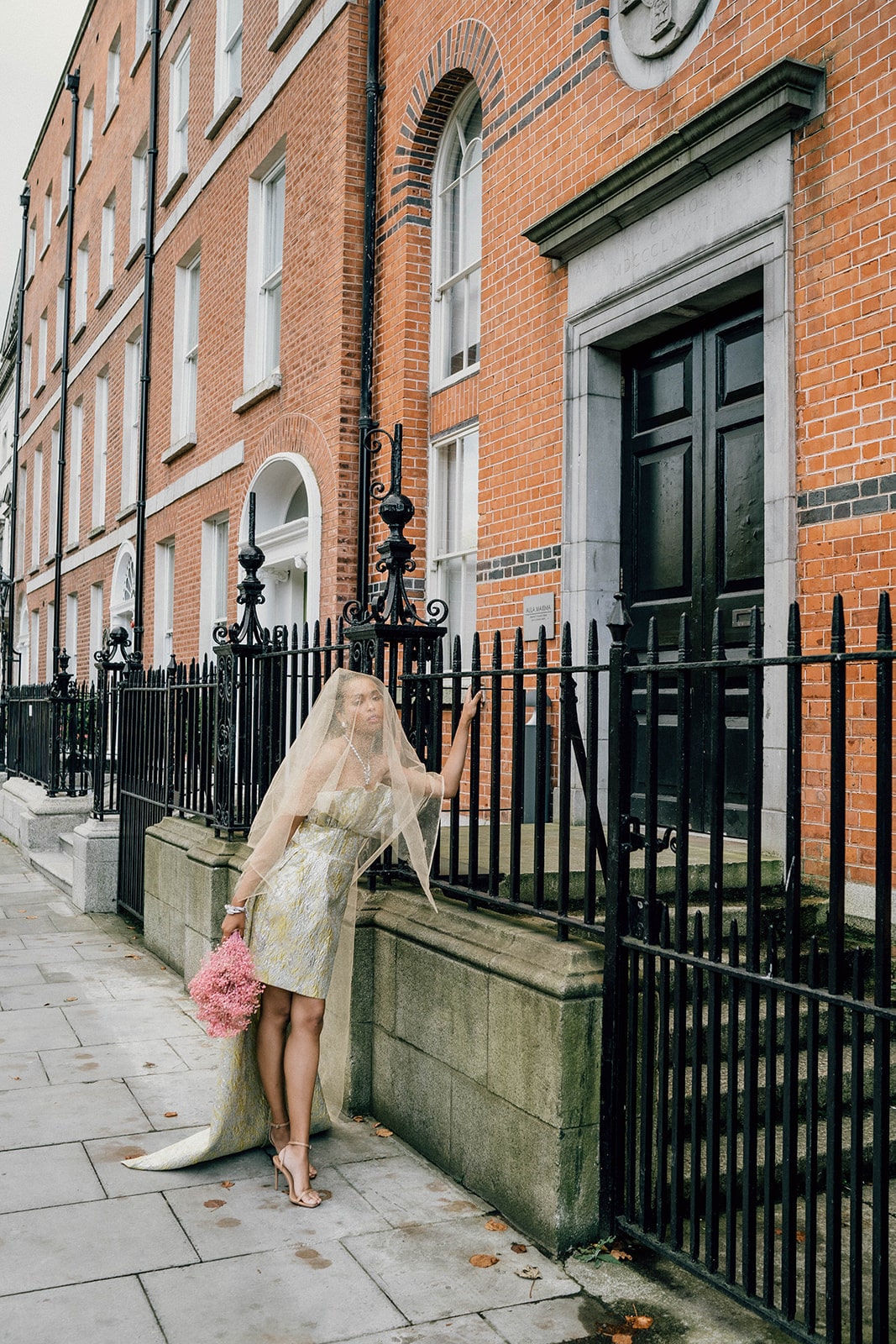
Buy a dress off the rack. You may have heard that custom-made wedding dresses should be ordered at least six months in advance. But that doesn’t mean you won’t look spectacular going down the aisle! There are several options, including paying a rush fee or buying your dress at a sample sale or off-the-rack from a bridal salon. And then, of course, there are lots of online options, including some fabulous designers on Etsy. Whichever route you take, be sure to factor in alteration time.
Choose ready-to-wear for the bridal party. Bridesmaid dresses can be ordered and delivered on a shorter timeline than a wedding dress, but your best option may still be to choose something ready-to-wear or let your girls pick their own dress in a specified colour or palette. The same goes for the gents – buy ready-to-wear or let them wear their own suits in a specified colour.
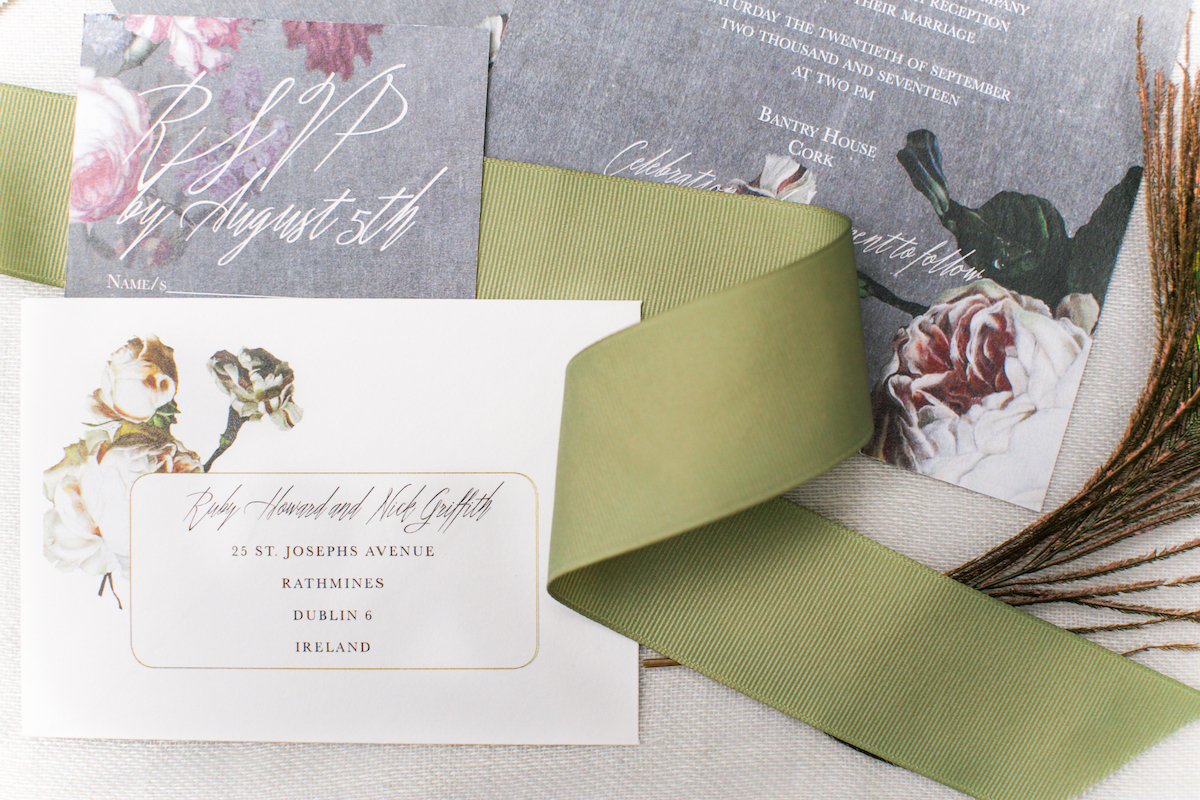
Give your guests as much notice as possible. It’s important to give your guests the most time you can to book travel, accommodation and time off work for a destination wedding. Even if you’re getting married close to home, you’ll want to get your wedding in their diary! Send out save the dates as soon as you select your venue. If you have less than six months, skip straight ahead to the invitations. These should go out at least eight weeks before the big day.
And there you have it – everything you need to plan a wedding in six months or less!
Slán go Fóill,
Tara
Images by Lisa O’Dwyer, Story of Eve





